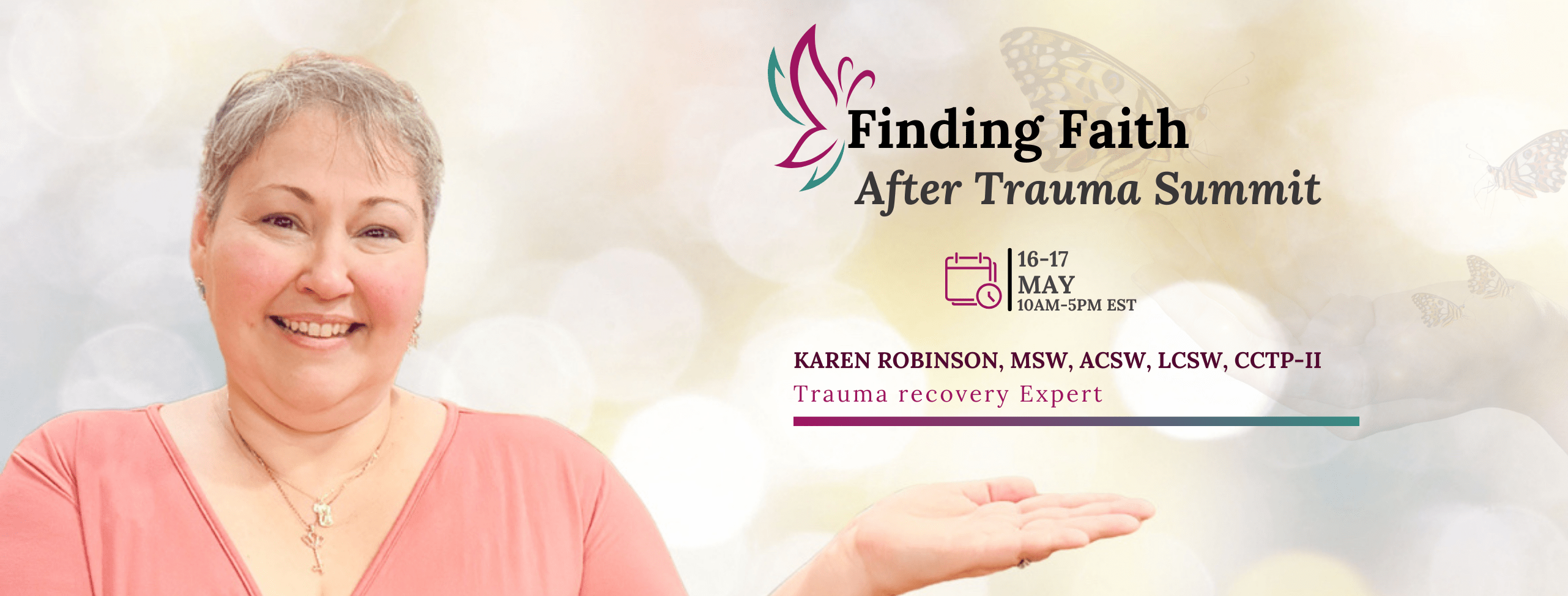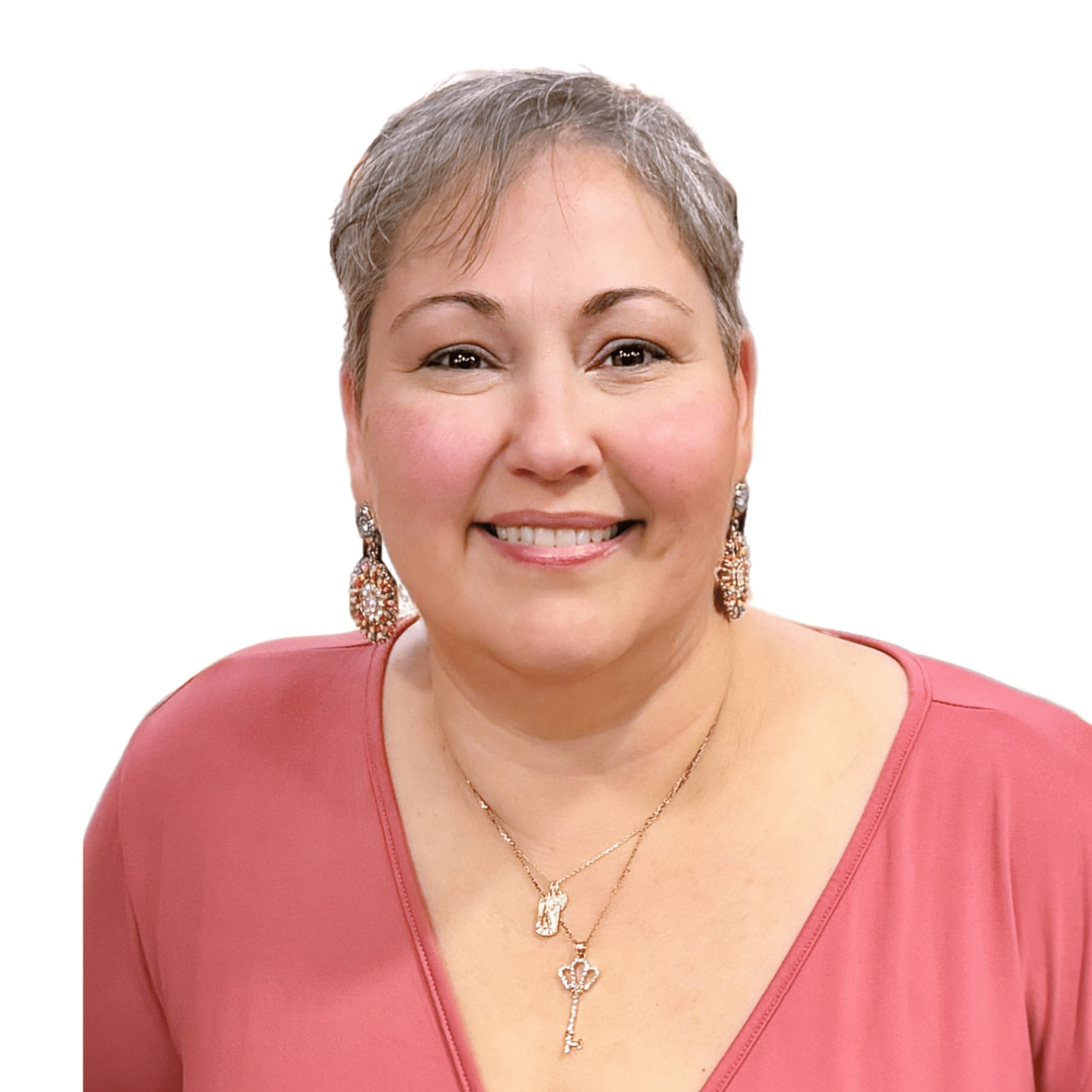Abuse by clergy or church leaders is an invasive betrayal of personal boundaries that more than bruises a survivor’s core spiritual and personal identity. As a therapist and transformational coach, specializing in trauma recovery, I have worked with numerous survivors who have faced this loss of innocence resulting in shame that is NOT theirs to claim. The path to healing is undoubtedly painful but it can also be rewarding. Of course, this is difficult for any survivor to believe when a trauma or abuse is fresh. It is not helpful to tell someone “You will one day find your abuse rewarding.” That is a gross and unhelpful statement. Healing is rewarding, abuse is not.
Please attend my free event: Finding Faith After Trauma
Acknowledging the Abuse/Trauma Experienced
The first step towards healing is acknowledging what happened. This is not easy. Confronting painful truths about authority figures in your church or religious institution is intimidating. It can also hurt as you may have once trusted this person deeply. Recognizing the abuse for what it is—an unjust and undeserved act of betrayal—is necessary. It is important to remember that the blame lies entirely with the perpetrator, not you - the victim then (but now a survivor).
Safe Spaces
Finding a safe space to express your feelings and share your story is healing. This could be with a trauma competent therapist, a support group, a trusted family member, or a compassionate friend. The importance of being heard and validated cannot be overstated—it is often the first step in reducing or crushing the power that the trauma holds over you.
Coping with Spiritual Betrayal
Abuse by a religious leader often involves spiritual betrayal that can lead to questions about faith and your relationship with God. It is important to differentiate the actions of perpetrators, pedophiles, and abusers from the essence of your faith. You may find it helpful to explore other expressions of faith, where leadership is transparent and accountable, and where compassion and justice are central values. I encourage you to “shop” around for a church/synagogue/mosque community that resonates with you!
Therapy (Trauma Modalities)
There are multiple trauma-focused therapeutic modalities that are considered evidenced base for healing complex trauma. I won’t include an exhaustive list here, but you are welcome to reach out to me for us to explore further. Treatment is very much individual specific. Some potential modalities include: trauma recovery empowerment modal (TREM), trauma-focused cognitive behavioral therapy (TF-CBT), eye movement desensitization and reprocessing (EMDR), accelerated resolution therapy (ART), Cognitive Processing Therapy (CPT). These are just a few of the many therapeutic treatment options that can be highly effective in processing and healing from clergy abuse. Therapy processes traumatic memories and reframes the negative beliefs you may have about yourself because of the abuse you endured.
Support Network
Healing is rarely a solitary journey, and you do not need to heal alone! Healing is expedited when done in community with others who get the pain and experience some or similar symptoms to the ones you are suffering from. Building a network of support to connect and grow within is deeply healing. Your support network can include friends, family, therapists, and others who have experienced similar traumas. Connecting with others who understand can provide a sense of community and decrease feelings of isolation. There are support groups that specialize in trauma recovery and you are welcome to join mine. This is Us: Healing From Trauma Together.
Finding Faith After Trauma Summit
May 16-17 at 10am-5pm EST
Education & Empowerment
Educating yourself about the dynamics, the impact, and symptoms of abuse can enhance your understanding of how widespread religious trauma happens within and outside of religious institutions can be empowering for you. Knowledge can transform your feelings of isolation into a shared experience with other survivors. Survivors will often find this validating and it fosters a sense of collective resilience.
Finding or Renewing Your Spirituality
If spirituality is an important aspect of your life or you would like it to be, find a way to reconnect with your spiritual beliefs after experiencing any type of abuse or trauma can be a powerful part of healing. This may involve a deeper or a different journey. You may want to explore your relationship with God or your higher power through prayer, quite reflection, reading spiritual texts, and searching for a comforting community. Redefining your spiritual beliefs or practices in a way that feels authentic and safe is priceless. Explore and find comfort in personal rituals or new spiritual communities will likely affirm your worth and dignity.
Your Voice and Self-Advocacy
Being an advocate for yourself and others is not necessary in order to heal. BUT if you choose to consider or explore this avenue, it is another way to expedite your healing journey. You may find that advocacy or activism to help prevent future abuses within religious institutions provides you with a new found purpose. Feeling in control by using your voice, talents, and resources can transform your personal tragedy into a catalyst for change for yourself and others. If this interests you, please feel free to reach out to me as I have resources to assist you with this.
Self-Compassion
I have found that survivors struggle with the idea of self-compassion. This may be true for you too. Throughout the healing journey, if you commit to practicing acts of self-compassion, you will find yourself having more self-confidence and more grace for yourself. Healing is not linear; and you will have setbacks and difficult days. Being gentle with yourself, acknowledging your progress, and celebrating the strength it takes you to work on recovery are key components to increasing your self-compassion. Practice the mantra, “I am kind to myself!”
My Final Thoughts
Healing from abuse by clergy or church leaders is possible, but it requires time, support, and often professional guidance. Your path to healing will look different as everyone’s path is unique, and what works for one person may not work for another. The key is to find what resonates with you, supports your healing, and helps you move towards spiritual healing that is comforting.
As a professional with extensive experience in empowering trauma survivors, I encourage you or anyone you know dealing with the aftermath of such abuse to reach out for help. There are resources available, and you do not have to recover or heal alone. Healing is not just a opportunity; it is your right.
Please attend my free event: Finding Faith After Trauma



